8 Most Festivals You Can Enjoy In North East India
By: Sandeep Gupta Wed, 12 Feb 2025 10:28:14
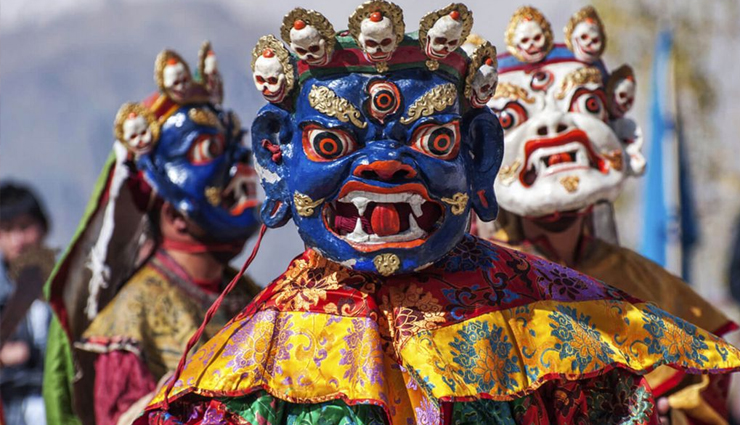
Festivals have always been a celebration of community and unity, where people come together, setting aside their differences. In the northeastern region of the country, home to a diverse array of tribes, these festivals offer an opportunity for individuals to join in common celebration. They highlight the rich culture and heritage passed down through generations, symbolizing a profound connection between humans and nature.
Many of the festivals here are rooted in Tibetan Buddhism, mark the beginning of the New Year, or are held to express gratitude for and hope for a bountiful harvest. Featuring traditional folk and tribal music and dance, these festivals can span from a few days to several weeks, providing an excellent chance for people from different tribes to connect and bond.
With delicious delicacies, colorful costumes, soulful music, warm hospitality, and a vibrant atmosphere, the festivals of the Northeast offer plenty of reasons to be part of the celebration.
Read on to explore some of the most popular festivals in the North Eastern states.
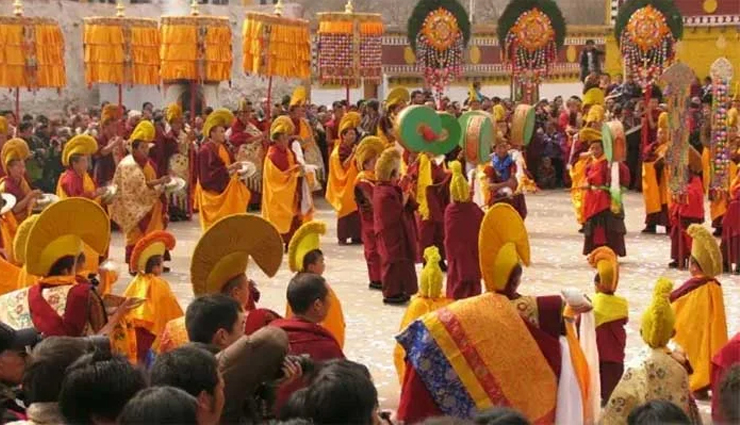
# Losar, Arunachal Pradesh
Losar, a three-day festival in Arunachal Pradesh, marks the beginning of the Tibetan New Year. Celebrated by Tibetan Buddhist communities, including the Monpa, Sherdukpens, Memba, Khamba, and Nah tribes, Losar is a time of renewal and unity. The tribes, who follow the Mahayana sect of Buddhism, celebrate for up to 15 days depending on the rituals.
On the first day, priests offer prayers to the Dharmapala or Palden Lhamo, and people visit Tawang Monastery to pray for a prosperous New Year. A special dish, Guthuk, a Tibetan noodle soup made with nine ingredients symbolizing good fortune, is prepared. The second day, known as Gyalpo Losar, is reserved for the King and involves visiting friends and family, exchanging greetings of "Tashi Delek" (good luck), enjoying festive foods, games, and fireworks. On the third day, people donate food and clothes, raise prayer flags, and light butter lamps.

# Saga Dawa, Sikkim
Saga Dawa, one of the most significant Buddhist festivals in Sikkim, falls on the full moon of the fourth month of the Tibetan calendar. Known as the "Month of Merits," the festival commemorates the birth, enlightenment, and death of the Buddha. During this time, devotees focus on accumulating good karma through kind deeds, as it is believed that the benefits of these actions are multiplied a thousandfold.
The main celebration occurs on the 15th day, but the entire month is filled with acts of kindness such as helping the poor, visiting temples, and tying prayer flags. In Gangtok and across Sikkim, you can witness monks carrying holy texts, chanting mantras, and participating in colorful processions.
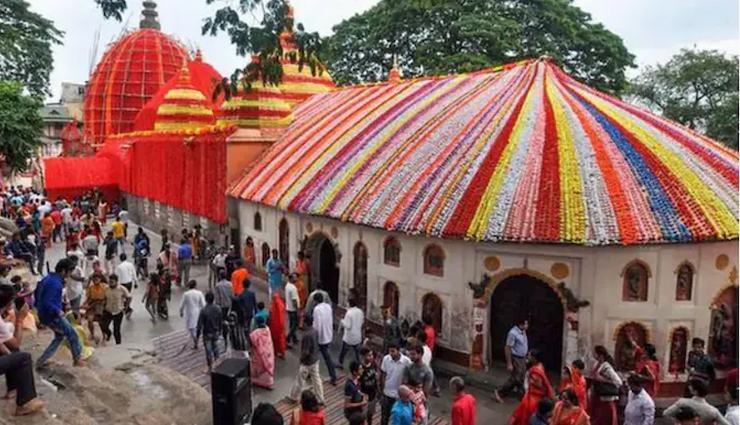
# Ambubachi Mela, Assam
Held annually in June at the Kamakhya Temple in Guwahati, Assam, the Ambubachi Mela is one of Northeast India’s most significant festivals. The temple, dedicated to Goddess Sati, is a major Shakti Peetha, worshiping the goddess's womb. The festival celebrates fertility, faith, and the divine feminine.
During this time, it is believed that the goddess undergoes her annual menstrual cycle, and the temple remains closed for three days. Devotees visit the temple grounds, seeking blessings, even though the doors are shut. After the three-day period, the temple reopens for prayers, and the Tantrik Cult performs unique rites.
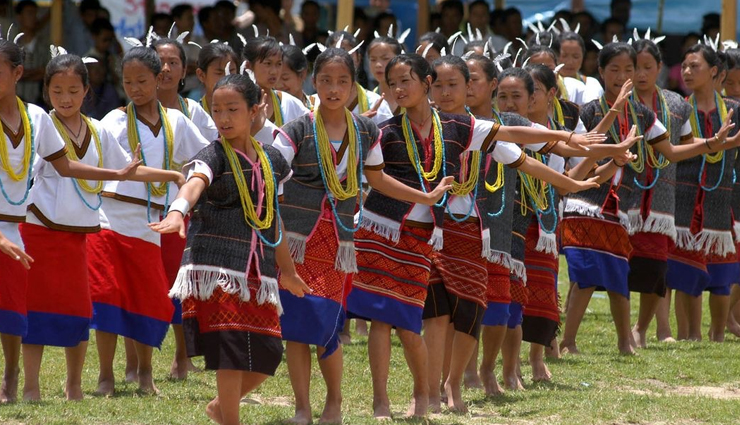
# Dree Festival, Arunachal Pradesh
Dree Festival, an essential celebration for the Apatani Tribe in Arunachal Pradesh, is held every year on July 5, with festivities starting the day before. It is an agricultural festival that celebrates the completion of crop planting, and the people pray to the five gods—Tamu, Metii, Medvr, Mepin, and Danyi—for a good harvest.
The main celebrations in Ziro Valley include ritualistic sacrifices, the distribution of rice and millet beer, and traditional dances. The festival also features football, volleyball, and badminton games, as well as competitions in essay writing to promote the Apatani language.
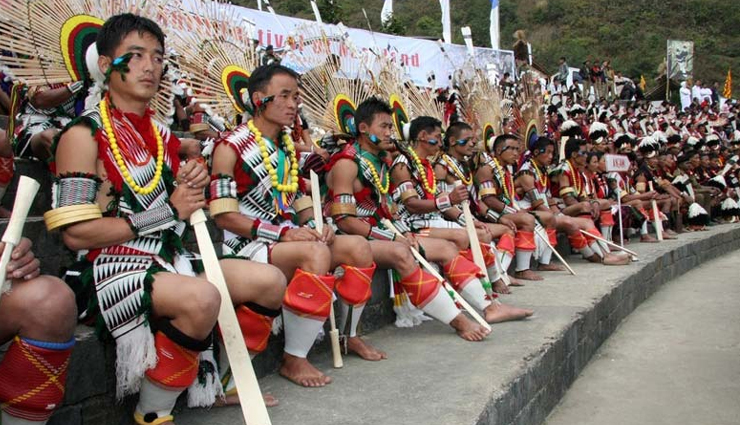
# Moatsu Mong, Nagaland
Moatsu Mong, a three-day festival celebrated from May 1 to 3 in Nagaland, marks the end of the sowing season. It is celebrated by the Ao tribe in Mokokchung district and is a time for bonding within the community. During the festival, wells are cleaned, beer is brewed, and the people enjoy local delicacies. Cultural programs include traditional warrior dances performed by men and songs sung by women to honor the Ao villages.
The festival also features games, such as football and volleyball, and includes a celebration of community service, with activities like cleaning the houses of the elderly and clearing the land for farming. After the hard work of sowing, Moatsu Mong serves as a time of rest and recreation.
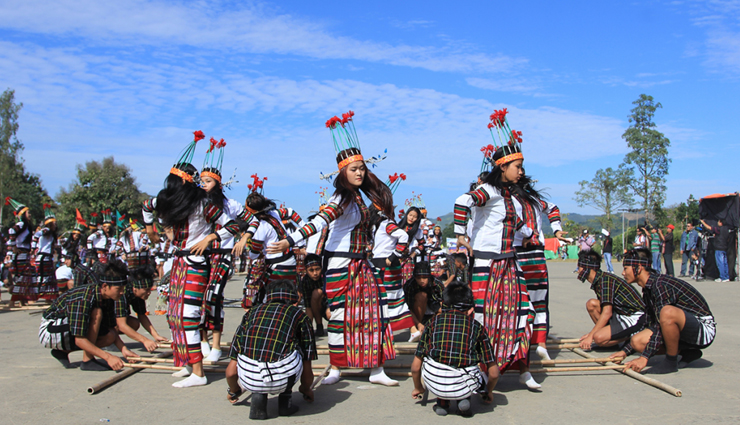
# Anthurium Festival, Mizoram
Held in the village of Reiek, located 70 km from Aizawl, the Anthurium Festival is a celebration aimed at promoting tourism and showcasing the rich culture of Mizoram. Organized since 2006, the festival highlights traditional music, dance, fashion shows, and local handicrafts, along with adventure sports like zip-lining and rock climbing.
The festival takes place during the blooming season of the Anthurium flower, which blankets the village in vibrant colors. The event offers a variety of activities, making it a must-visit for those interested in experiencing the beauty and culture of Mizoram.
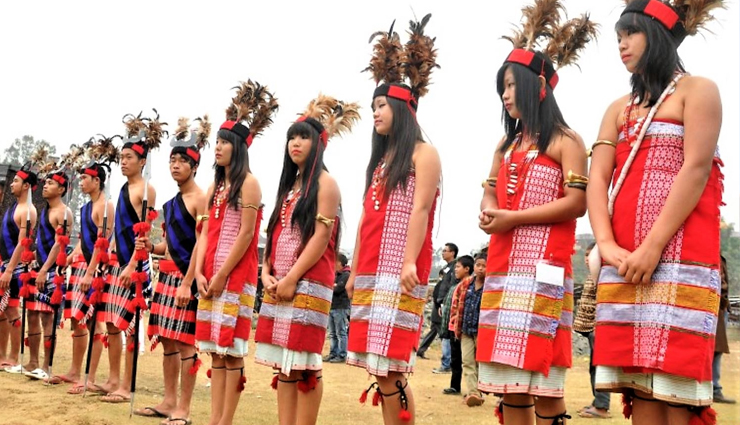
# Lui-Ngai-Ni, Manipur
Lui-Ngai-Ni, celebrated on February 15, marks the beginning of the seed-sowing season and is an important festival for the Naga tribes in Manipur. The festival is marked by traditional music, dance, and games, such as oiled bamboo pole climbing and fire acrobatics, all performed to please the gods for a prosperous harvest.
In addition to the Naga tribes of Manipur, tribes from neighboring states like Nagaland, Arunachal Pradesh, and Assam also join in the celebrations. Major events take place in the villages of Senapati, Ukhrul, Chandel, and Tamenglong, strengthening the bond between the Naga tribes.
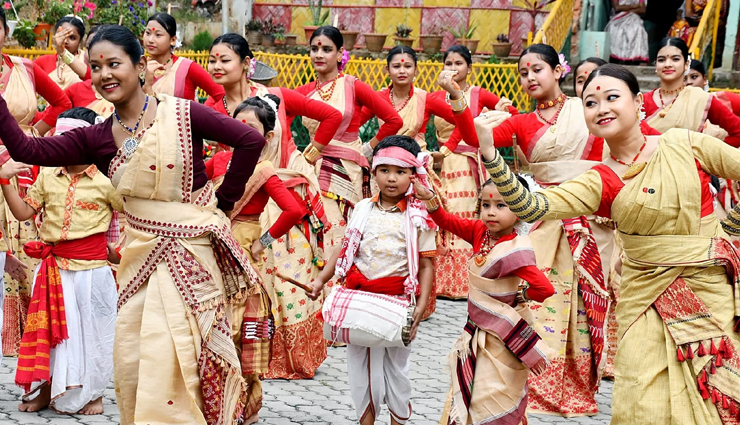
# Bihu Festival, Assam
Bihu is celebrated throughout the year in Assam, with three distinct occasions: Bohag Bihu (Rongali Bihu), Magh Bihu (Bhogali Bihu), and Kati Bihu (Kongali Bihu). Bohag Bihu, which marks the beginning of the sowing season and the Assamese New Year, begins on April 14. The festival spans a month, with the first day, Goru Bihu, dedicated to honoring livestock by bathing and feeding cows and bulls.
The second day is for greeting family and friends and offering Gamosas (traditional hand-woven towels). People enjoy Assamese delicacies like Pitha, a rice-based sweet, and perform the Bihu Dance, a significant part of the celebration. The festival continues for a month, with performances held across the state.





